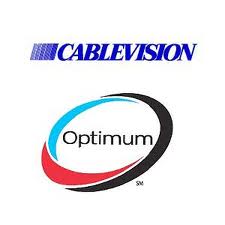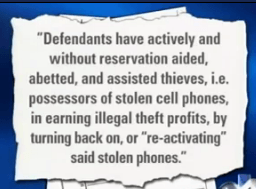Tribune Broadcasting Corporation’s WPIX-New York, KWGN-Denver, WPHL-Philadelphia, and WCCT-Waterbury/Hartford, Conn. were all dropped from Cablevision’s lineup late last week in the latest fee dispute between TV station owners and cable systems.
Tribune says the stations were taken off Cablevision as the two sides were in a negotiating session, even after offering the cable company an extension of their current agreement to avoid upsetting viewers.
“Cablevison took this action despite our offer of an unconditional extension of the current carriage agreement with no change in terms while negotiations continued,” Tribune said in a statement. “To be clear, Tribune was willing to provide Cablevision subscribers access to the valuable programming on these stations while working toward a new agreement. Tribune never made any threat to withdraw these stations or any demand that Cablevision remove them.”
Cablevision’s decision to discontinue the New York/Philadelphia stations affects subscribers in suburban Connecticut and New Jersey, Brooklyn, the Bronx, and Long Island. KWGN is a common superstation seen on Cablevision/Optimum West systems in Colorado, Montana, Wyoming and Utah.
Cablevision accused Tribune’s owners of anti-consumer behavior over their demands for higher retransmission fees.
 “The bankrupt Tribune Co. and the hedge funds and banks that own it, including Oaktree Capital Management, Angelo Gordon & Co. and others, are trying to solve Tribune’s financial problems on the backs of Cablevision customers,” Cablevision said. “Tribune and their hedge fund owners are demanding tens of millions in new fees for WPIX and other stations they own. They should stop their anti-consumer demands and work productively to reach an agreement.”
“The bankrupt Tribune Co. and the hedge funds and banks that own it, including Oaktree Capital Management, Angelo Gordon & Co. and others, are trying to solve Tribune’s financial problems on the backs of Cablevision customers,” Cablevision said. “Tribune and their hedge fund owners are demanding tens of millions in new fees for WPIX and other stations they own. They should stop their anti-consumer demands and work productively to reach an agreement.”
WPIX management counters the station is asking for less than a penny extra per day per subscriber.
Both sides are appealing to the public, but city comptroller John C. Liu is fed up.
“These blackouts are happening all too often,” Liu said. “Cablevision, as a city franchisee and service provider, should do all it can to ensure that this blackout is resolved swiftly because New Yorkers deserve to get what they pay for, not be unfairly punished because of battling corporate interests. If a swift resolution cannot be achieved, the Department of Information Technology and Telecommunications must step up to hold the provider accountable to the subscribers, who feel the brunt of this irresponsible disagreement.”
Liu adds that New Yorkers are effectively paying Cablevision for channels they no longer receive, and the cable operator is not offering any refunds.
Eventually, both sides will come to an agreement for higher payments, which will be passed along to subscribers with the next rate increase.
[flv width=”640″ height=”380”]http://www.phillipdampier.com/video/Bloomberg Cablevision Blacks Out Tribune Channels in Dispute 8-17-12.flv[/flv]
Bloomberg News talks with Matthew Harrigan from Wunderlich Securities about the impact of the Tribune-Cablevision dispute. Does WPIX and Tribune have enough clout to get Cablevision to cave? (2 minutes)


 Subscribe
Subscribe







